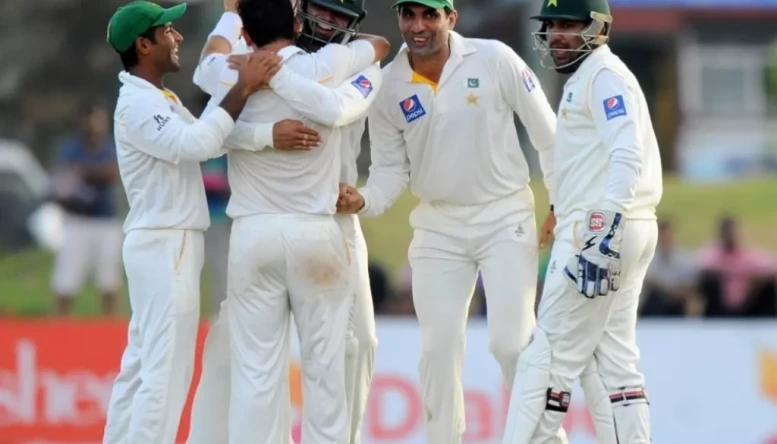England vs Pakistan - Pakistan unearth new talent even though the domestic system is not very stable
The biggest story ahead of Pakistan’s first Test against England was that the latter would play a red-ball game in the nation for the first time since 2005
 Pakistan unearth new talent
Pakistan unearth new talentThat, and the fact that England’s players were hit by a virus ahead of the match, laid down most of the squad, including skipper Ben Stokes, Joe Root, and others.
But on the game day, Pakistan raised a few eyebrows – and not due to any ill effects from any virus.
No, the hosts named four debutants in their playing XI – Haris Rauf, Saud Shakeel, Mohammad Ali, and Zahid Mehmood.
Of the four, only Haris Rauf – who has been a critical bowler for Pakistan in white-ball cricket in recent times and was one of their stars in their improbable run to the final of the 2022 T20 World Cup – is a known entity, albeit not in Test cricket.
The other three names won’t ring a bell for most fans. Saud Shakeel has played five ODIs for Pakistan in the past, but that’s the extent of his involvement with the side.
Mohammad Ali is a 30-year-old pace bowler who’s only played 22 first-class games, 12 List-A games and 3 T20s. This is his first-ever cap for Pakistan in any format.
Zahid Khan is, amazingly, even older than Ali. He’s currently a sprightly 34 and has previously played only four ODIs and one T20I for Pakistan.
The real question is, where does Pakistan find so much talent from? Especially considering that everyone knows their domestic system is far from perfect.
Imran Khan and Ramiz Raja, who’ve held positions of power in the Pakistan Cricket Board and, in Imran’s case, was even PM of Pakistan, made it a point to publicly declare their intent to fix Pakistan’s domestic cricket system.
That it hasn’t yet happened and that Pakistan have remained relatively successful despite that – even spawning a successful domestic T20 league in the process – is probably one of the most Pakistan things ever.
But the real reason for their success is simple – they know they are underdogs, embrace the challenge and back themselves to do well anyway.
The same philosophy is applied when it comes to bringing in new talent. If a player is young and showing promise, Pakistan won’t let him plug away into the domestic system.
They’ll bring him into the national team and let the player sink or swim on his own merits. That their talent pool isn’t as deep as India’s, Australia’s, or England’s also means they stick with players much longer.
This has a positive effect as it leads to players developing while on the world stage, thus teaching them more than they would learn while playing domestic cricket.
And this approach has led to Pakistan producing a decent amount of talent, especially in the pace bowling department.
Whether or not this is a sustainable approach remains to be seen – and it’s why the board has publicly made it a priority to fix the domestic system.
But you cannot deny that it works.
Editor's Picks
- 01
Brendon McCullum: England ready to be 'really brave' in team selection for India series
- 02
Diogo Jota inspires Liverpool surge as injuries fail to dampen Premier League lead
- 03
Cameron Norrie ready to go toe-to-toe with the big boys after stellar Australian Open run
- 04
Maxwel Cornet confident of scoring run after opening West Ham account